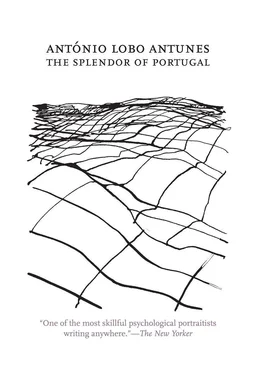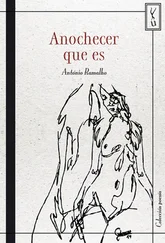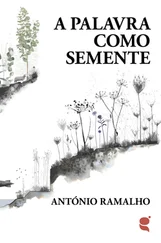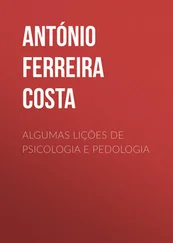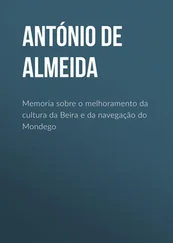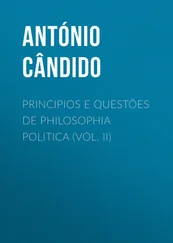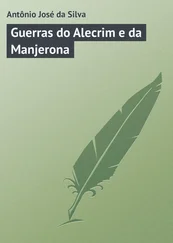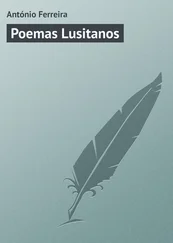António Antunes - The Splendor of Portugal
Здесь есть возможность читать онлайн «António Antunes - The Splendor of Portugal» весь текст электронной книги совершенно бесплатно (целиком полную версию без сокращений). В некоторых случаях можно слушать аудио, скачать через торрент в формате fb2 и присутствует краткое содержание. Год выпуска: 2011, Издательство: Dalkey Archive Press, Жанр: Современная проза, на английском языке. Описание произведения, (предисловие) а так же отзывы посетителей доступны на портале библиотеки ЛибКат.
- Название:The Splendor of Portugal
- Автор:
- Издательство:Dalkey Archive Press
- Жанр:
- Год:2011
- ISBN:нет данных
- Рейтинг книги:3 / 5. Голосов: 1
-
Избранное:Добавить в избранное
- Отзывы:
-
Ваша оценка:
- 60
- 1
- 2
- 3
- 4
- 5
The Splendor of Portugal: краткое содержание, описание и аннотация
Предлагаем к чтению аннотацию, описание, краткое содержание или предисловие (зависит от того, что написал сам автор книги «The Splendor of Portugal»). Если вы не нашли необходимую информацию о книге — напишите в комментариях, мы постараемся отыскать её.
The Splendor of Portugal — читать онлайн бесплатно полную книгу (весь текст) целиком
Ниже представлен текст книги, разбитый по страницам. Система сохранения места последней прочитанной страницы, позволяет с удобством читать онлайн бесплатно книгу «The Splendor of Portugal», без необходимости каждый раз заново искать на чём Вы остановились. Поставьте закладку, и сможете в любой момент перейти на страницу, на которой закончили чтение.
Интервал:
Закладка:
“Ma’am”
as if she were truly scared and the plastic guns were really firing bullets, can you believe it, until the stage manager and the prompter ask her
“Well?”
Maria da Boa Morte, obedient, letting go of my arm, hurriedly putting a half-dozen splotches of paint on her belly, breasts, and face, trying to speak, falling silent, trying to speak again
“How was I?”
hoping that it would make me happy, how stupid, that I would be delighted with her, that I would get excited
“You were great”
Maria da Boa Morte now playing a corpse like the other actors lying facedown on the ground, their bodies being drained, stains stretching out on the ground that weren’t blood, anything you like but not blood, no one can convince me that it was blood, extending down the length of her leg, me impatient
“Stop this right now it’s not funny get up”
leaning over her, shaking her shoulder
“I said get up didn’t I?”
a third of her nose still there, a third of her skull, a flap of flesh hanging over her only eye, if I were to scrape at it with a stick or my fingernails her real features would appear underneath, if I clapped my hands, if I applauded
“That’s enough you were great”
Maria da Boa Morte would smile at me and that would be that, if I were to warn her that it’s getting late, four hours of travel left at least and that’s if the rain doesn’t open potholes on the dirt road, the little ones are waiting for dinner in Baixa de Cassanje, Carlos who won’t eat without her, Clarisse making all the tractor drivers uneasy, Rui making a mess all through the house smashing my mother’s altar to pieces, tormenting Lady, plucking the feathers off the peacocks, if I can convince her that I need her, not that I’m her friend
let’s be sensible here
that I need her, she’ll say good-bye to the director, disobey the stage manager, and come along, the two of us down at the workers’ quarters by the river with the doll with a missing arm perched up on a shelf as if it were a throne, if you squeezed her navel her expression stays the same but she says
“Mama”
that’s the thing about the Bailundos that makes me furious, their expression never changes, the police chief would raise his whip at them or hold his pistol up to their ear and there’d be silence, no complaints, they had no more awareness than inanimate objects, a childlike innocence that had nothing to do with pride or dignity or courage, I was going to say they had the temperament of a chicken but chickens, good Lord, chickens at least kick their feet, try to escape, you can see quite clearly that they’re scared of us, but the Bailundos at most
“Yes sir”
at most
“Yes boss”
never objecting, never revolting, apologizing for the inconvenience of making us punish them for no reason, just like us when we go up to the whites in Lisbon, dragging around a sheaf of papers from office to office, apologizing for them robbing us, accepting their alms, meager meals, staying in prefab buildings next to schools, in empty barracks, ancient palaces with wood-paneled walls and no roofs in the middle of gardens overgrown with shrubs, scattered weeds, fences with missing rails, dusty old gazebos, me to Maria da Boa Morte in Baixa de Cassanje in the hut by the river, in which, according to her grandmother, boa constrictors laughed with the voices of children, me shaking her shoulder
“Get up”
the two of us watching, as we held hands, the arrival of my father’s first automobile, a saucepan with wheels and a pair of round eyes made of glass, my father bouncing in the seat on top of it and my mother panicking on the porch
“The azaleas”
wearing a hat that would later be mine
“My how pretty you are Isilda”
and ended up faded, eaten by moths, in the chest in the attic, the wide brim, the veil, the little plastic fruits, the ribbons, my mother slowly grazing it with the tips of her fingers, my father putting the car in reverse, trying to swerve around the flower beds, driving the car onto the lawn, running into the front gate, then heading resolutely toward the flowers, trampling them before finally coming to a stop against the front steps, my mother on her knees among the plants straightening stems, gathering up petals, fixing smashed corollas, resurrecting what she’d created in order to conquer the French woman and her bracelets, her necklaces, her horses
“The azaleas”
me to Maria da Boa Morte on the Corimba highway
“Get up”
my father perplexed as he got out of the automobile, examining the engine with the owner’s manual
a book that was bigger than a dictionary with a photograph of the saucepan-shaped car on the cover
open on the hood, drawings, arrows, paragraphs in English, my father tracing diagrams of wires and coils with his uncertain little finger
“I swear I don’t understand what happened it drove beautifully in Luanda”
my mother going into the garage that night with an ax, turning on her flashlight, bashing the automobile, the doors, the roof, the windows, which were turned into tiny grains of glass, I could no longer hear the parakeets rustling in the golden rain tree, my father gesticulating in his nightshirt out of which emerged a faint plea
“My dear”
me to Maria da Boa Morte because it was getting late
“Enough of this it’s not funny get up”
splotches of paint on her belly, her chest, her face, trying to speak, falling silent, a stain that wasn’t blood, anything you like but not blood, stretching down the length of her leg, a third of her nose, a third of her skull, a flap of flesh hanging down over her only eye, if I were to scrape at it her real features would appear underneath, the soldiers with the plastic machine guns surprised by my applause
“You were great”
you were great but we’re so old and it’s getting late now, get up, so old, I won’t go so far as to admit that I’m your friend
let’s be sensible
I need you the same way that the white people in Lisbon need us so they can sell Angola, the coffee, the cotton, the corn, the tobacco, the scales and acids of the Jewish diamond merchants, and since they’ve already sold it we don’t exist anymore, the theater director told everyone to put everything in its place, told my father
“Now don’t forget to trample the azaleas with the antique car”
and turned out the lights, as if it were getting dark, spilled cans of motor oil and a handful of tools on the ground, directing the person playing my mother
“Now hit the body of the car, with feeling this time”
Maria da Boa Morte and I down at the workers’ quarters by the river searching for hyena tracks in the fields, Fernando ringing the dinner bell, turning the person playing my mother into my actual mother
“Isilda”
the relatives in Moçâmedes enraptured
“My how she’s grown”
a choir of old women with feathered fans that smelled like doves, my mother pushing me towards a fluffy lap that smelled sour
“Twelve years old now Auntie”
the fans, which seemed very impressed by the passage of time, flapped in unison in a frenzy of surprise
“My Lord”
from time to time a letter that had been sent months earlier, its edges black with dirt, announced the burial of one of the old women, and my mother, wiping away a corner of her sorrow with the corner of a handkerchief, would add the woman’s photograph to the sepulchre, the top of a chest of drawers lined with photos of the deceased, their frames on a linen tablecloth, which to judge from its lack of decoration represented a shroud
“Poor thing”
the relatives in Moçâmedes offered me chocolates that had melted during their trip, caramels glued together in sticky clusters, packages of cookies reduced to musty grains of sand, my father’s eyes would grow very wide, commanding me
Читать дальшеИнтервал:
Закладка:
Похожие книги на «The Splendor of Portugal»
Представляем Вашему вниманию похожие книги на «The Splendor of Portugal» списком для выбора. Мы отобрали схожую по названию и смыслу литературу в надежде предоставить читателям больше вариантов отыскать новые, интересные, ещё непрочитанные произведения.
Обсуждение, отзывы о книге «The Splendor of Portugal» и просто собственные мнения читателей. Оставьте ваши комментарии, напишите, что Вы думаете о произведении, его смысле или главных героях. Укажите что конкретно понравилось, а что нет, и почему Вы так считаете.
